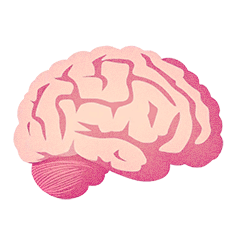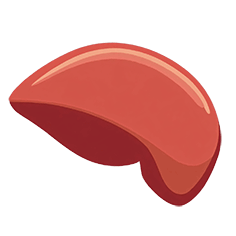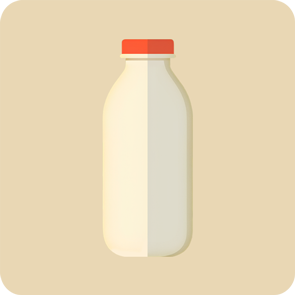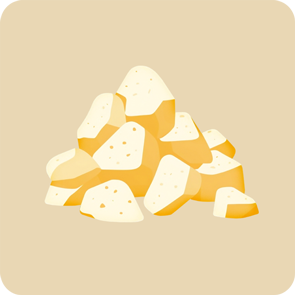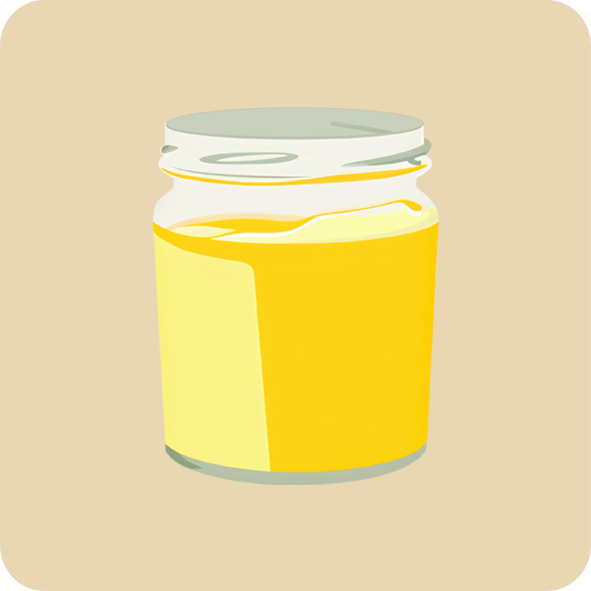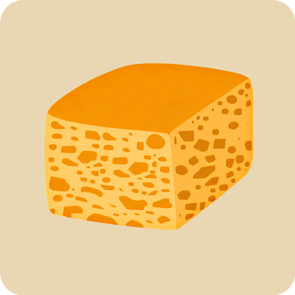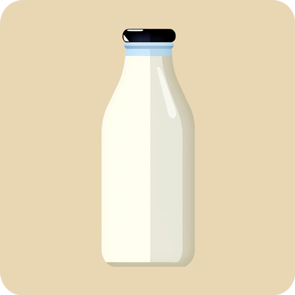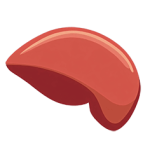
Liver Health
Liver health is essential for detoxification, digestion, and energy balance, depending on a nutrient-rich diet, hydration, and limited exposure to toxins.
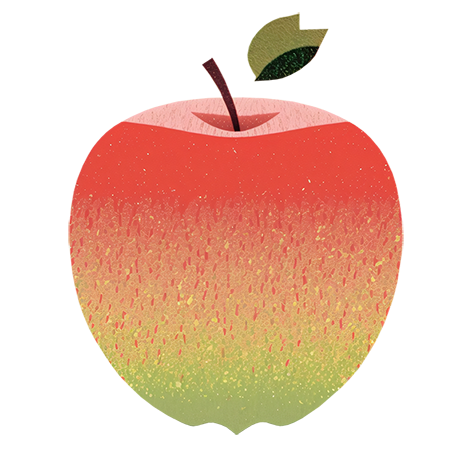
Glucose
(Preferred Fuel Source)
- The liver primarily relies on glucose for energy, storing and releasing it as needed to maintain blood sugar levels.
- Fatty acids can also be used for energy, especially during fasting or low-carb conditions.

Choline
(Fat Metabolism Support)
- Choline helps prevent fat accumulation in the liver and supports bile production.
- Found in soybeans, nuts, and cruciferous vegetables.

Glutathione
(Detoxification Powerhouse)
- Glutathione is a powerful antioxidant that aids in detoxifying harmful substances in the liver.
- Naturally produced by the body and found in sulfur-rich foods like garlic and onions.

Omega-3 Fatty Acids
(Inflammation Fighter)
- Omega-3 fatty acids help reduce liver inflammation and fat buildup.
- Present in flaxseeds, walnuts, and algae-based supplements.

Vitamin E
(Liver Cell Protector)
- Vitamin E acts as an antioxidant, helping protect liver cells from oxidative damage.
- Found in nuts, seeds, and leafy greens.

B Vitamins
(Metabolic Support)
- B Vitamins (B6, B9, B12) aid in liver detoxification and energy metabolism.
- Available in whole grains, legumes, and leafy vegetables.

Zinc
(Liver Enzyme Regulator)
- Zinc supports liver enzyme function and helps reduce inflammation.
- Abundant in nuts, seeds, and legumes.

Selenium
(Liver Detox Aid)
- Selenium boosts antioxidant defenses and helps remove toxins from the liver.
- Found in Brazil nuts, whole grains, and mushrooms.
Top foods good
for the liver ✓

Fatty Fish (salmon, mackerel, sardines)
High in omega-3 fatty acids, which reduce liver inflammation and fat accumulation.
Nuts (almonds, walnuts)
Provide healthy fats and antioxidants that support liver function.
Berries (blueberries, cranberries)
Packed with antioxidants that protect the liver from damage and inflammation.
Leafy Greens (spinach, Kale, Arugula)
Rich in chlorophyll, which helps neutralize toxins and support liver detoxification.
Cruciferous Vegetables (Broccoli, Brussels Sprouts, Cauliflower)
Contain compounds like sulforaphane that enhance liver detox enzymes and reduce oxidative stress.
Advocado
Rich in healthy fats and glutathione, a powerful antioxidant that helps the liver detoxify harmful substances.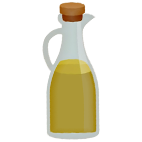
Olive Oil
Provides healthy monounsaturated fats that reduce fat buildup in the liver.
Grapefruit (lentils, chickpeas, black beans)
Contains antioxidants like naringenin and naringin, which protect liver cells and reduce inflammation.
Beetroot
High in nitrates and antioxidants that support liver function and reduce oxidative stress.
Turmeric
Contains curcumin, which helps reduce liver inflammation and supports bile production.
Garlic & Onions
Contain sulfur compounds that activate liver detoxification enzymes.
Coffee & Green Tea
Coffee helps reduce liver enzyme levels and may lower the risk of liver diseases and Green tea contains catechins, which protect liver cells from damage.Top foods bad
for the liver✘

Alcohol
The leading cause of liver damage, contributing to fatty liver disease, inflammation, and cirrhosis.
Sugary Foods & Drinks (Soda, candy, baked goods)
High in saturated fats, sodium, and preservatives, which can contribute to high blood pressure and heart disease.
Fried Foods (French Fries, Fried Chicken, Burgers)
Contain preservatives and saturated fats that can contribute to liver damage.
Processed Meats (Hot dogs, bacon, sausages)
High in saturated fats, sodium, and preservatives, which can contribute to high blood pressure and heart disease.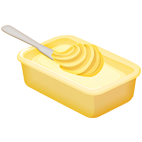
Trans Fats (Partially Hydrogenated Oils)
Found in margarine, fast food, and processed snacks, contributing to inflammation and fatty liver.
Excess Salt (Chips, Canned Soups, Processed Foods)
Can lead to fluid retention and liver scarring over time.
White Bread & Processed Carbs (Pasta, White Rice, Pastries)
Cause blood sugar spikes and increase fat deposits in the liver.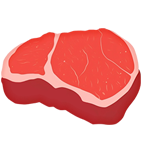
Red Meat (in Excess)
High in saturated fat, which can burden the liver if eaten excessively.
Artificial Sweeteners (Aspartame, Saccharin)
Some studies suggest they may contribute to liver stress and fat buildup.
Energy Drinks (burgers, pizza, nuggets)
Often contain high amounts of sugar and additives that may stress the liver.Liver Malnutrition
Effects 
1. Fatty Liver Disease (Hepatic Steatosis)
- Lack of essential nutrients, especially protein and choline, can cause fat buildup in the liver, impairing its function.
2. Impaired Detoxification
- The liver relies on B vitamins, zinc, and magnesium to detoxify. Deficiency can cause toxin buildup.
3. Liver Fibrosis & Cirrhosis
- Chronic malnutrition weakens the liver’s ability to repair itself, leading to scarring (fibrosis) and, in severe cases, cirrhosis.
4. Reduced Bile Production
- Bile helps digest fats and absorb fat-soluble vitamins (A, D, E, K). Malnutrition can lead to poor digestion and deficiencies in these vitamins.
5. Weakened Immune Function
- A lack of protein and antioxidants weakens the liver’s role in immune defense, increasing the risk of infections and inflammation.
6. Muscle Wasting (Cachexia)
- The liver helps regulate protein metabolism. Malnutrition-related liver damage can lead to muscle loss and overall weakness.
7. Increased Risk of Liver Infections
- Poor nutrition compromises the liver’s defense system, making it more vulnerable to infections like hepatitis and other inflammatory conditions.
8. Blood Clotting Issues
- The liver produces clotting factors, and malnutrition (especially vitamin K deficiency) can lead to excessive bleeding and slow wound healing.
Explore the Food Groups
Mattis nibh odio sed urna. Turpis suspendisse ullamcorper malesuada

